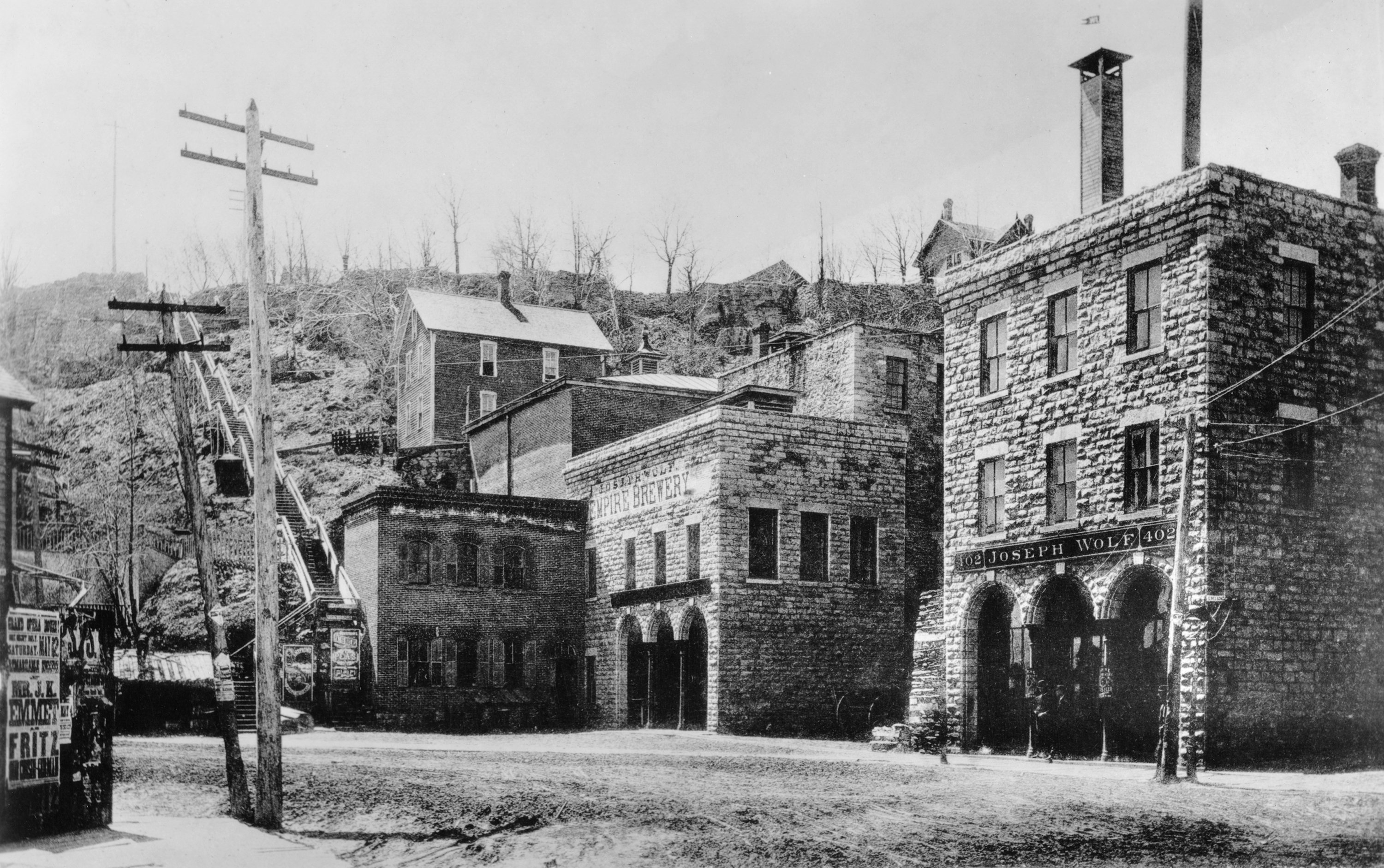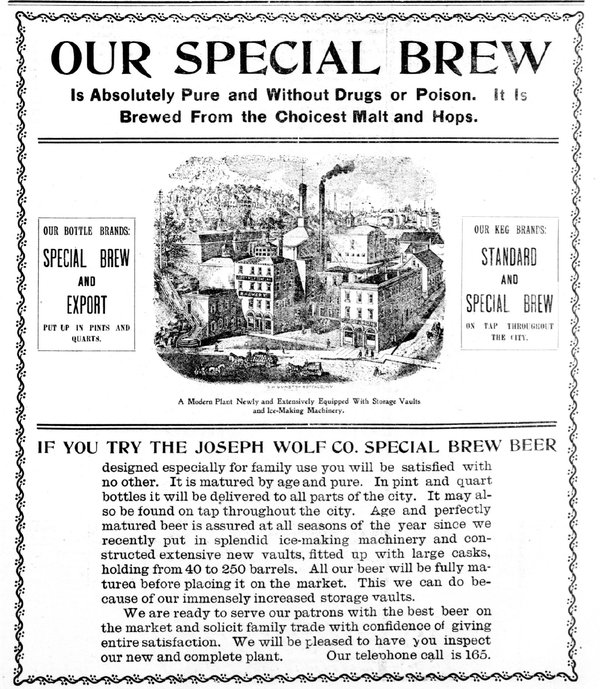Joseph Wolf Brewery
When Stillwater was settled, many businesses needed to be set up to support such a community. There was the lumber mill, blacksmith shop, grocery store, hardware store, and one of the earliest businesses – a brewery.
In 1851, Norbert Kimmick started a small distillery in his kitchen. He was producing about five barrels of whiskey a week, and the following year he started a brewery. He ran it solo until 1854 when he took on a partner, Frank Aiple. The two men were in partnership until 1857 when Kimmick died. The Aiple brewery, along with the St. Croix Brewery on the north end of town, were the only breweries in Stillwater until the Wolf Brothers arrived and put their mark on the industry in the 1860s.
Joseph Wolf was born on January 4, 1832 in Truns, Switzerland. He was in Toledo, Ohio in 1854. A year later, he found himself in St. Paul in 1855 and then moved on to Stillwater in 1856. He married Mary Simonet in October 1858. Wolf had many different jobs in the early days in Stillwater. He worked at the Schulenberg Mill, was a barber and a bartender – he even owned his own saloon known as the “Railroad Saloon.”
In 1868, Martin Wolf, Joseph’s brother, erected a small wooden building about 40 x 50 feet and one story tall, for the brewing of beer. In March 1871, the brewing company became known as Wolf, Tanner and Company; Joseph Wolf and A. Tanner being the principal owners. The brewery continued in the small wooden building until March 25, 1872, when it was destroyed by fire.
Construction of new buildings commenced immediately after the fire. These new buildings, made of stone, increased the output of the brewery from 2,000 to 6,000 barrels per year. In May 1875, the Stillwater Lumberman newspaper noted, “Wolf, Tanner & Co. are completing the ice house, on top of the recent addition to their brewery by encasing the same with a wall of red brick. Their new process of manufacture, which furnishes the genuine lager beer during the entire year, is meeting with great success.”
In May 1876, Joseph Wolf purchased the brewery. In 1880, a brick office block was constructed adjoining the brewery. That same year, the brewery used 18,000 bushels of barley. A 15 horsepower engine with a boiler of 35 horsepower ran the brewery. In 1880, 12 men were employed full time at the brewery.
Barley was the key to the brewery and by 1881, needing now more than 20,000 bushels, Wolf was concerned about getting the needed supply. “Joseph Wolf says the long continued bad condition of the roads have made it next to impossible to obtain barley through to supply his establishment,” noted the Stillwater Daily Sun in October 1881, “while the demand for beer is greater now than last spring. He has secured an additional cooper, who arrived yesterday from New York.”
In March 1896, Wolf incorporated the business, adding three of his sons and two son in laws to the business. The officers of the company were Joseph Wolf, President; Joseph Berkly, Vice President and Secretary; and Anthony Wolf, Treasurer.
The Joseph Wolf Brewery also did some distilling and had a line of whiskies that were very popular. The brewery would push its output to 25,000 barrels annually making it one of the largest capacity breweries in Minnesota. The Wolf’s “Special Brew” and “Pilsner lager beer” are two of the brands that met with great success over the years. The Wolf Brewery not only kept the city of Stillwater full of beer but the Wolf brands were sent all over Minnesota, Wisconsin and the Dakotas.
The Wolf brewery was a great success. Unfortunately, when prohibition became the law of the land, the brewery closed. Although the Wolfs tried to sell “near beer,” beer without alcohol, and soda pop, these products never caught on and the brewery shuttered for good.
Joseph Wolf and his wife celebrated their golden wedding anniversary at St. Mary’s Church in Stillwater on August 10, 1908. Many friends and family attended—the couple had 14 children during their marriage.
Wolf became ill on May 27, 1921 passed away only a couple of hours later at his home at 402 South Main Street. He was 89 years old. In his obituary the next day, the Stillwater Gazette noted, “Mr. Wolf had a long and useful life. He was one of the most modest and unassuming of men—one who had the confidence and respect of all who knew him and it is said that no one in need ever appealed to him for assistance in vain.”
—Brent Peterson
Brent Peterson is the Executive Director of the Washington County Historical Society.


